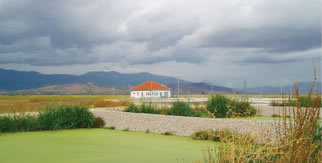
Management, Economic Policy
Advanced On-Site Wastewater Treatment and Management Market Study
Publication Date: Sept. 2000
Cooperating Institution: EPRI Community Environmental Center
Principal Investigator: N/A
Project Budget: N/A
Project Identifier: 1000612
DESCRIPTION
On-site septic systems have traditionally been considered a temporary solution on the way to sewering. However, the elimination of federal grants for sewers and wastewater treatment plants has brought a new awareness of the high costs and the sometimes adverse environmental consequences of centralized point discharges. At the same time, advances in on-site technologies, including such systems as low-flow water conservation, watertight septic tanks with screens, sand filtration, disinfection, remote monitoring, nitrogen-removing recirculating filters, and small-scale clustering into neighborhood leaching fields have dramatically improved the performance of the on-site technology portfolio. New areas such as membrane technology offer potentially even greater possibilities for recycling highly-treated wastewater for reuse at the home.
A further development is the growing insight into the importance of professional management and maintenance. Typically, maintenance and inspections were left to the individual homeowner, and failures were frequent. Just as changing or not changing the oil can make a difference in the life of an automobile, routine pump-outs and repairs can improve the functioning and life-expectancy of the septic system. The newer technologies using mechanical pumps and floats, smaller filter units, and similar devices will require even greater oversight. The idea that a private or public entity can hire qualified staff and perform these functions cost-effectively for hundreds or thousands of systems in a geographic area is a good one, and a potential new business venture.
Finally, with the emergence of watershed planning and an increasingly sophisticated understanding of ecosystem conditions, the potential to target specific technologies in specific areas with attendant cost-savings and enhanced environmental protection, is coming to be understood. Ultimately, engineers should be able to assess the ecological conditions in the area, site more expensive advanced systems in zones where needed, and develop monitoring programs to track impacts of system performance on the environment. The fact that there is a centralized management entity for this work could give regulators the confidence to allow for such targeting flexibility. Within a watershed, remediation of failing on-site systems through programs of advanced technology, where needed, and professional management may obviate the need for expensive sewer extensions or treatment plant upgrades to improve or maintain water quality.
The purpose of this study has been to explore the short- and long-term opportunities for advanced on-site and cluster system technologies and management across the country. Two research projects were undertaken. First, a database was assembled with information on each of the counties in the U.S., including various risk-related factors as percentage of undeveloped soils with hydraulic or filtration failure problems, septic system density, average age of septic systems, expected population growth rates, and others. Second, surveys were mailed to two or more officials and experts in each of the states, including at least one state regulator and one other expert, such as a professional engineer or academic. The survey forms included questions about numbers of new systems and repairs; the present status of on-site conditions, development pressures, and water quality; anticipated changes in on-site system regulation and management; use of alternative and advanced technologies; on-site funding; and various initiatives, including research projects, training programs, demonstration projects, and public education programs. Finally, a more in-depth exploration of key barriers and incentives for development of this approach was conducted.
Associated Documents
Volume 1: Assessment of Short-Term Opportunities and Long-Run Potential
Volume 2: State Reports
Report No. 1000612, Published by EPRI Community Environmental Center, St. Louis, Missouri
Contact Information: Phone: 314/935-8589; Email: rehrhard@epri.com

